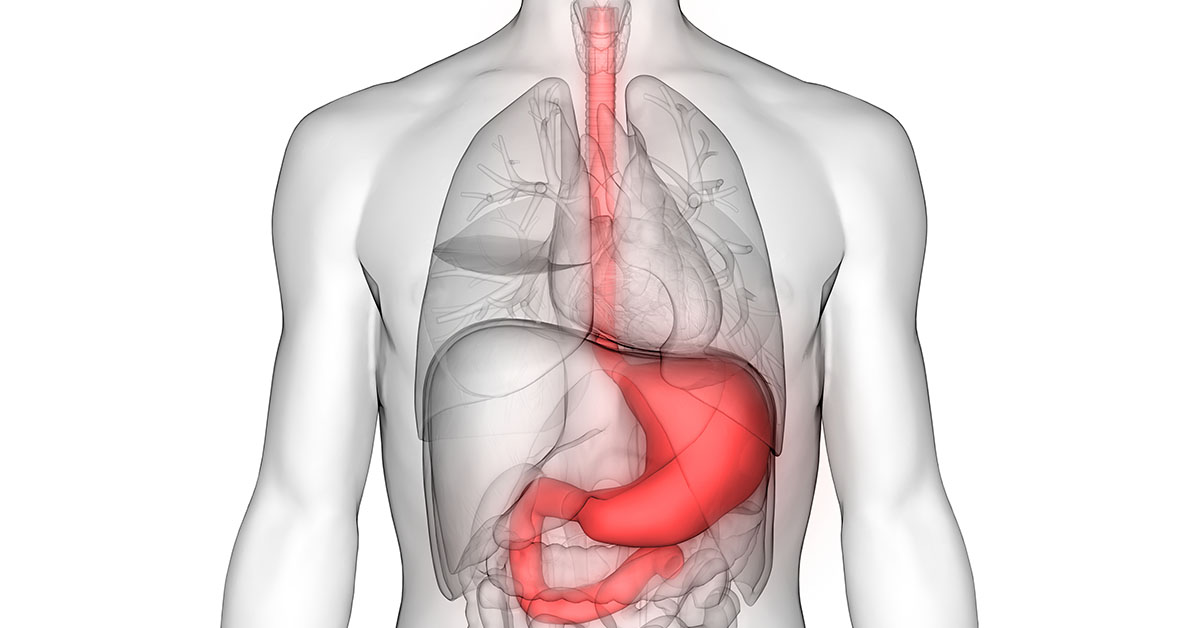
Gastric Cancer: Know the Risks and Symptoms
-
An upset stomach can ruin your day, but it’s usually not serious. Viruses and ulcers are common culprits. But sometimes persistent stomach troubles can signal a more serious problem: gastric cancer.
Also known as stomach cancer, gastric cancer has ambiguous and common symptoms, such as feeling nauseous. That can make it difficult to detect early, when it’s easiest to treat. That’s why it’s important to understand the risks and know the signs, and to see a doctor right away if there is any chance that you might have the disease.
Gastric cancer risk
Anyone can develop gastric cancer. However, according to the American College of Gastroenterology, certain factors can increase your risk.
The disease is more common among people over the age of 55. Men get gastric cancer twice as often as women. And African Americans are more affected than white people.
People who have pernicious anemia, gastric atrophy, or have had stomach surgery may have an increased risk. There’s also evidence that smoking increases the risk of gastric cancer.
In the United States, there’s no routine screening for gastric cancer; but, if you and your doctor determine you’re at high risk, you should talk about the benefits of screening.
Symptoms of gastric cancer
In its early stages, gastric cancer often doesn’t have symptoms—that’s why it’s so hard to detect.
“Gastric cancer symptoms are so vague, and that is part of the problem,” said Andrea Porpiglia, MD, MSc, a surgical oncologist at Fox Chase Cancer Center. “When those vague symptoms turn persistent, last more than a few days or recur consistently over a couple of weeks, it is time to have them evaluated.”
According to the American Cancer Society, symptoms of gastric cancer include:
- Belly pain
- Poor appetite
- Weight loss
- Discomfort in the abdomen
- Heartburn or indigestion
- Nausea
- Vomiting, with or without blood
- Sense of fullness in the upper abdomen after eating a small meal
- Swelling or fluid buildup in the abdomen
- Blood in the stool
- Low red blood cell count
Not every gurgle or upset stomach is a sign of gastric cancer, but some symptoms may be more meaningful than others.
“With gastric cancer, there are three big things to watch for,” Porpiglia said. “The first is weight loss, especially when it isn’t explained. The second is pain that doesn’t go away. Another cause for concern is blood in the stool.”
When to see a doctor
If you have symptoms or feel something isn’t quite right, see your doctor—the sooner, the better.
“Unfortunately, over 60% of patients who present with gastric cancer have advanced disease,” Porpiglia said. “If you find it early, survival is up to 80% over five years. The problem is vague symptoms. People ignore it or don’t see their doctor, and by the time they see their doctor it could have spread. That’s why it’s important not to ignore symptoms.”
You aren’t troubling anyone by getting your symptoms checked out. It’s best to know exactly what’s causing your discomfort. And treating minor issues now may help prevent them from becoming more complicated later.
Learn more about gastric cancer diagnosis and treatment at Fox Chase Cancer Center.
